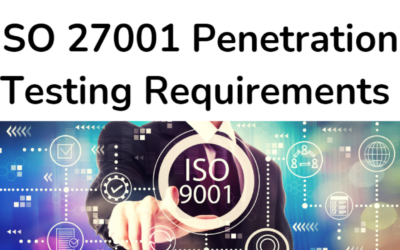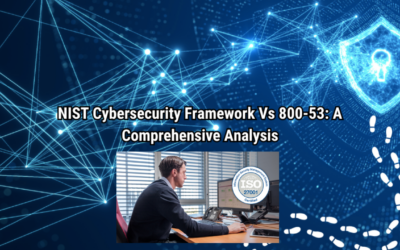Businesses must prioritize the security and integrity of their information systems to safeguard sensitive data against escalating cyber threats. Two critical frameworks that help organizations achieve robust security standards are ISO 27001 And SOC Audit Firms. These frameworks not only ensure compliance with global standards but also enhance customer trust and operational efficiency.
ISO 27001:
ISO 27001 is an internationally recognized standard for Information Security Management Systems (ISMS), published by the International Organization for Standardization (ISO) and the International Electrotechnical Commission (IEC). It outlines a systematic approach to managing sensitive information, including risk assessments, implementation of security controls, and continuous improvement practices.
Achieving ISO 27001 certification requires organizations to:
- Identify information security risks.
- Implement robust controls to address those risks.
- Regularly review and improve security measures.
The certification process involves a thorough audit by an accredited certification body, ensuring that the organization complies with all requirements of the standard.
Understanding SOC Audits
SOC audits, developed by the American Institute of Certified Public Accountants (AICPA), assess an organization’s internal controls related to financial reporting, data security, and service commitments. There are three main types of SOC reports:
- SOC 1: Focuses on financial reporting controls.
- SOC 2: Evaluates controls related to security, availability, processing integrity, confidentiality, and privacy.
- SOC 3: A general-use version of SOC 2 for public distribution.
Key Differences Between ISO 27001 and SOC Audits

While ISO 27001 and SOC audits both aim to enhance information security, they differ in scope, methodology, and applicability:
| Aspect | ISO 27001 | SOC Audits |
| Scope | Organization-wide ISMS | Specific internal controls |
| Standards | International (ISO/IEC) | AICPA frameworks |
| Focus | Risk management and ISMS implementation | Operational controls for data security |
| Certification | Achieved through accreditation | Audit report provided |
| Audience | Global applicability | U.S. and service organizations |
Benefits of ISO 27001 and SOC Audits
ISO 27001 Certification
- Enhanced Security Posture: A structured approach to identifying and mitigating security risks.
- Global Recognition: Compliance with an internationally accepted standard.
- Regulatory Compliance: Helps organizations adhere to data protection laws like GDPR and HIPAA.
- Customer Trust: Demonstrates a commitment to safeguarding sensitive data.
- Operational Efficiency: Streamlines processes and reduces the likelihood of data breaches.
SOC Audits
- Client Confidence: Assures customers that internal controls meet high standards.
- Market Differentiation: Distinguishes service organizations in competitive markets.
- Risk Mitigation: Identifies and addresses control weaknesses.
- Regulatory Alignment: Ensures compliance with industry-specific requirements.
- Transparency: SOC 3 reports provide public assurance of a company’s control environment.
Firms Specializing in ISO 27001 Certification and SOC Audits
1. Deloitte
Deloitte is a global leader in professional services, offering ISO 27001 certification and SOC audit services. Its expertise spans diverse industries, ensuring tailored solutions for complex security challenges.
2. PwC (PricewaterhouseCoopers)
PwC provides comprehensive ISO 27001 and SOC audit services, leveraging advanced technology and methodologies to deliver actionable insights.
3. EY (Ernst & Young)
EY helps organizations achieve ISO 27001 certification and conducts SOC audits to strengthen their security posture and regulatory compliance.
4. KPMG
KPMG specializes in risk management and assurance, offering ISO 27001 certification and SOC audit services that address specific business needs.
5. BDO
BDO’s expertise in ISO 27001 and SOC audits enables organizations to achieve compliance while improving overall efficiency and security.
6. TÜV SÜD
TÜV SÜD is a globally recognized certification body providing ISO 27001 services. It also collaborates with firms for SOC audits, ensuring a robust security framework.
7. A-LIGN
A-LIGN specializes in cybersecurity and compliance solutions, including ISO 27001 certification and SOC 2 audits, for a wide range of industries.
8. ControlCase
ControlCase offers both ISO 27001 certification and SOC audit services, focusing on continuous monitoring and compliance support.
ISO 27001 and SOC Audits in Industry Contexts

Financial Services
Both frameworks are crucial in the financial sector, where data breaches can have catastrophic consequences. ISO 27001 ensures a comprehensive ISMS, while SOC audits validate internal controls for financial reporting and data security.
Healthcare
ISO 27001 and SOC 2 audits are essential for healthcare organizations to protect patient data and comply with regulations like HIPAA.
Technology and SaaS
Technology firms leverage ISO 27001 and SOC audits to enhance customer trust and differentiate themselves in a competitive market. These certifications are particularly valuable for cloud service providers.
Retail and E-Commerce
ISO 27001 and SOC audits help retailers safeguard customer information and comply with data protection laws, fostering trust in online transactions.
Government and Public Sector
Government agencies use ISO 27001 and SOC audits to protect sensitive data and enhance public trust in their operations.
Steps to Achieve ISO 27001 Certification
- Gap Analysis: Assess current practices against ISO 27001 requirements.
- Develop an ISMS: Create an information security framework tailored to the organization’s needs.
- Risk Assessments: Identify and evaluate potential risks.
- Implement Controls: Establish measures to mitigate identified risks.
- Training and Awareness: Foster a culture of security awareness.
- Internal Audit: Evaluate the effectiveness of the ISMS.
- Certification Audit: Engage a certification body for final evaluation.
Steps to Conduct a SOC Audit
- Define Scope: Determine the systems and controls to be assessed.
- Engage Auditors: Partner with a qualified CPA firm.
- Perform Readiness Assessment: Identify and address gaps before the audit.
- Audit Execution: Auditors evaluate controls and processes.
- Report Generation: Receive the SOC report, detailing findings and recommendations.
Conclusion:
ISO 27001 certification and SOC audits are indispensable tools for organizations seeking to enhance their security frameworks and build stakeholder confidence. While ISO 27001 provides a holistic approach to information security management, SOC audits offer in-depth evaluations of specific internal controls. By leveraging these frameworks, businesses can protect sensitive data, comply with regulations, and gain a competitive edge in the marketplace. Firms specializing in these services play a critical role in guiding organizations through the complexities of certification and audits, ensuring long-term security and success in an ever-evolving digital landscape.



0 Comments